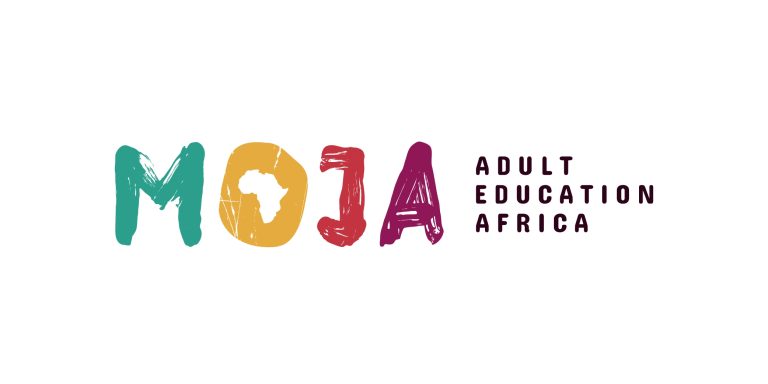African Continental Project: A new departure for Adult Learning and Education in Africa
9 May 2023 | David Harrington | DVV International ALE

In March 2021 the MOJA Adult Education Platform went online. This was a first of its kind development for ALE on the African continent. For the first time, adult educators and stakeholders and those with an interest in African ALE had a continental online community to belong to. Now, two years later, MOJA is expanding to become part of the African Continental Project (ACP).
With 54 countries and multiple languages, it is no small challenge to bring the diverse African ALE community together. However, this is exactly what the ACP is seeking to do. By aligning the digital innovations of the MOJA platform with the ALE work that takes place on the ground across the continent every day, the ACP is seeking to bring together ALE stakeholders from all over Africa who face very similar challenges, albeit in different national, cultural and linguistic contexts.
The African continent has a long and rich tradition of adult education, yet too often stakeholders look beyond the borders of Africa when seeking expertise in ALE. Furthermore, there is very little exchange on ALE across national and regional borders in Africa, which results in ALE practitioners reinventing the wheel over and over. Due to these and other factors, African voices for advocacy on ALE are not prominent on the world stage. These are some of the fundamental issues that inspired the development of MOJA and which the ACP is seeking to address.
Through the MOJA platform, the ACP provides a range of tools for the ALE community to engage with one another. Subscribing to the platform (which is free) enables members to upload and share resources, articles and events on their ALE work. Regular online trainings and webinars on topics of trans-national interest bring together stakeholders from multiple countries, who would otherwise have little or no chance to interact.
The MOJA Adult Education Africa Journal is a new kind of online journal that targets people at all levels of the system (micro, meso and macro). It’s blend of magazine style articles with more academic pieces is intended to reach a broad range of stakeholders. But the MOJA Journal takes this even further. Article writers host webinars on the platform where they discuss their articles with the ALE community. In this way, it is hoped that these articles don’t just end on the page, but go on to inspire discussion and debate that can inspire new ideas and initiatives.
The ACP is currently conducting online training on the ALE System Building Approach (ALESBA), a topic which is of vital interest to all countries. Following a successful training focusing on Phase 1 in 2022, training on Phases 2 and 3 of the approach will be rolled out from May 2023. In the second half of 2023, a training programme on communications skills for ALE stakeholders and practitioners is planned. This training will enable organisations to develop the needed skills to better document and share their activities, an essential step in implementing sustainable ALE programmes.
The ACP is also reaching out to African universities and academics in general to foster dialogue and exchange on ALE development and implementation on the continent. Academia has a key role to play in guiding and inspiring the ALE sector. This role is being fulfilled more prominently in some countries than others. By bringing together dedicated academics and researchers on MOJA, the ACP aims to facilitate trans-national exchange and learning to enrich the discussion on the development of ALE in Africa.
The ACP subscribes to the vision and definition of ALE put forth by the International Council for Adult Education (ICAE), and endorsed by DVV International and several partners worldwide, that the ultimate goal of ALE is to ensure that adults, throughout their lives, can participate fully in societies, including the world of work. The initiative is funded by the German Federal Ministry for Economic Cooperation and Development (BMZ).